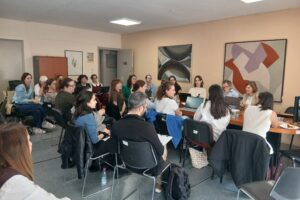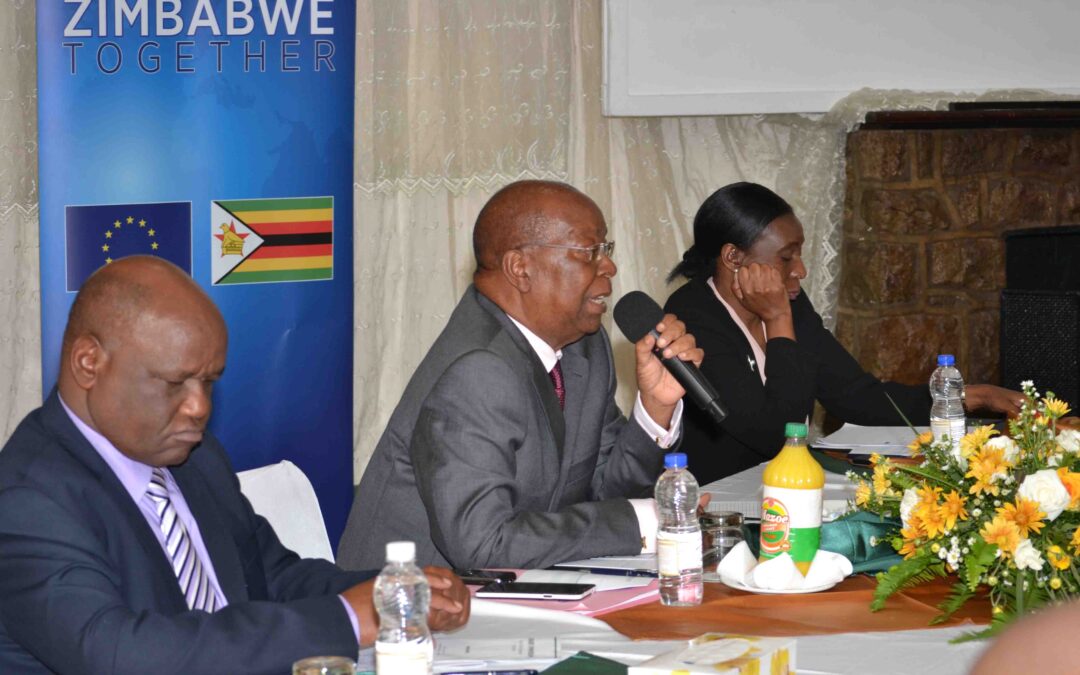
Apr 2, 2016 | News
The ICJ and the Judicial Service Commission of Zimbabwe held the End of Term Symposium for the judiciary of Zimbabwe at the Troutbeck Inn in Nyanga, 31 March – 2 April 2016.
Chief Justice Chidyausiku in his opening remarks at the End of Term Symposium, stated that the Symposia are important because they give judges an opportunity to meet and engage with each other on various issues of interest or concern.
Additionally the purpose of the Symposium is to improve the quality of service in terms of judgments and the speedy outcome of cases.
In attendance at the Symposium were 72 delegates including judges from the Supreme Court, High Court and Labour Court, as well as representatives from the Law Society of Zimbabwe.
The programme included a joint session with all the courts in attendance, to discuss topics of judicial ethics and case management.
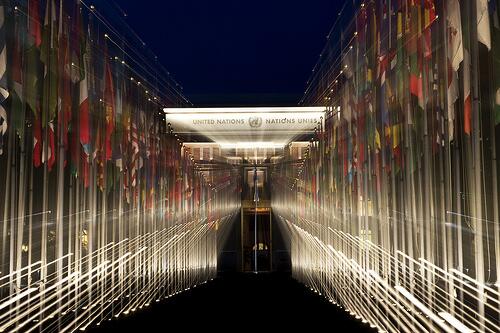
Mar 23, 2016 | Advocacy, Non-legal submissions
Today, the ICJ made a submission to the Human Rights Council’s Working Group on the Universal Periodic Review in advance of the Human Rights Council’s review of Uganda in October/November 2016.
In its submission, the ICJ expressed concern about the detrimental impact of the adoption and enforcement of the Anti-Homosexuality Act, 2014; the effect of pre-existing and extant criminalization of consensual same-sex sexual conduct; and the introduction of the Prohibition of Promotion of Unnatural Sexual Practices Bill, on the respect for and the protection and realization of human rights in Uganda.
A copy of the submission can be found here:
Uganda-ICJ CESCR submission-Advocacy-non legal submission-2015-ENG (full text in PDF)
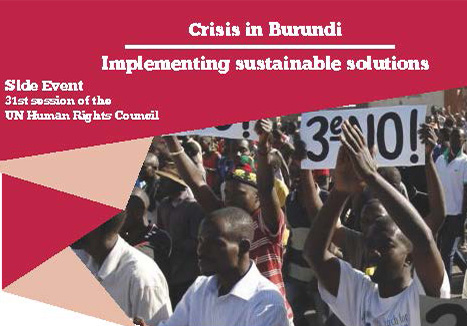
Mar 1, 2016 | Events
The ICJ is co-sponsoring a panel discussion on the situation for human rights in Burundi, as a side-event to the UN Human Rights Council, 4 March 2016.Details are available in the flyer available to download here: HRC31-sideeventflyer-burundi-2016
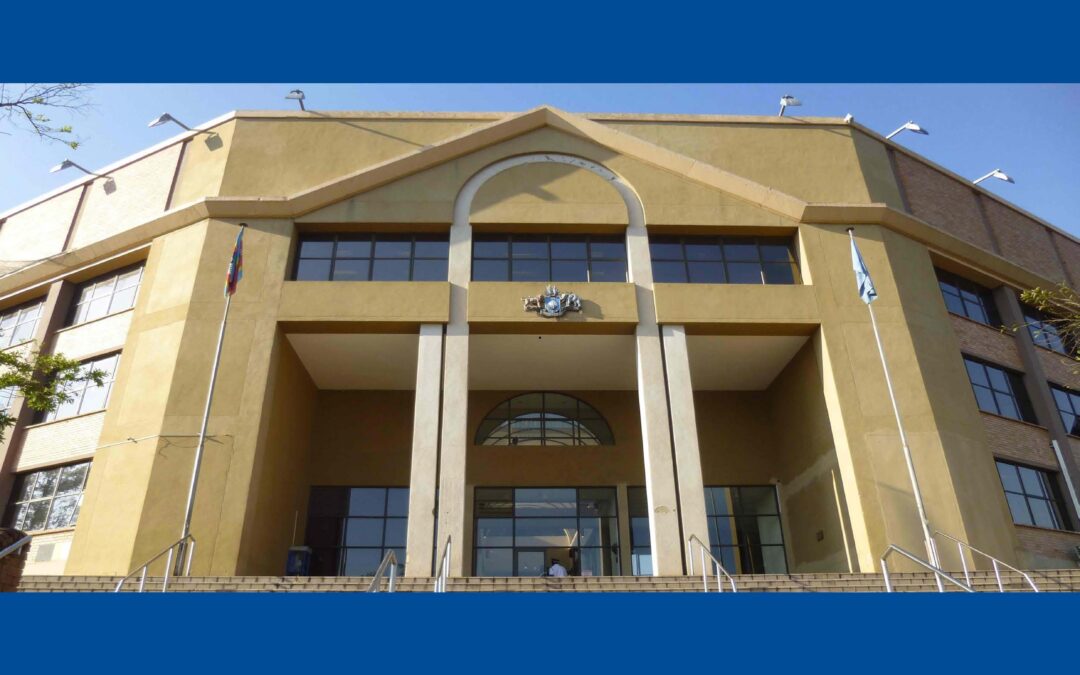
Feb 18, 2016
Today the ICJ launched a new report that makes several findings and recommendations regarding the independence and accountability of the judiciary in the country.
The report is a result of the International Fact Finding Mission in Swaziland (IFFM-SZ) held in 2015 by the ICJ, in collaboration with the Africa Judges and Jurists Forum (AJJF), Judges for Judges Netherlands (J4J) and the Commonwealth Magistrates’ and Judges’ Association (CMJA).
The mission was conducted at the backdrop of a number developments of concern for the independence and accountability of the judiciary in Swaziland.
The report observes that:
- The Kingdom of Swaziland has a constitutional and legislative framework that does not respect the separation of powers or provide the necessary legal and institutional framework and safeguards to ensure the independence of the judiciary;
- The former Chief Justice Ramodibedi failed to protect and defend the institutional independence of the judiciary;
- The Executive failed to respect the independence of the judiciary; and
- The failure to respect the independence of the judiciary by the Executive and the failure by the Chief Justice to defend the institutional independence of the judiciary created conditions conducive to abuse of the legal system for personal gain
Presenting the Mission’s findings, the ICJ Africa Regional Programme Director, Arnold Tsunga urged the Crown, Judiciary, civil society and international community to collectively work towards the implementation of the recommendations to strengthen the institutional and structural independence of the judiciary thereby restoring citizen’s and stakeholders confidence in the judiciary and the rule of law.
Contact
Arnold Tsunga, ICJ Regional Director for Africa, t: +27 73 131 8411, e: arnold.tsunga(a)icj.org
Swaziland-Justice locked out RoL crisis-Publications-Fact Finding Mission Report-2016-ENG (full report, in PDF)

Feb 16, 2016
In mid-February 2016, the ICJ made a submission to the Committee on Economic, Social and Cultural Rights in advance of Committee’s examination of Namibia’s combined Initial, First and Second Periodic Reports under the International Covenant on Economic, Social and Cultural Rights.
In its submission, the organization drew the Committee’s attention to the detrimental impact of the extant criminalization of consensual anal intercourse between males and of other various forms of sexual activities between consenting men through the crime of “unnatural sexual offences” on the enjoyment of Covenant rights, including, in particular, the principle of non-discrimination and the right to the highest attainable standard of physical and mental health by gay and bisexual men and, more generally, by the gay, bisexual, lesbian and transgender community in the country.
The ICJ’s submission contains a number of recommendations that the organization considers the Committee should address to the Namibian’s authorities to address its concerns.
(Full text in PDF)






